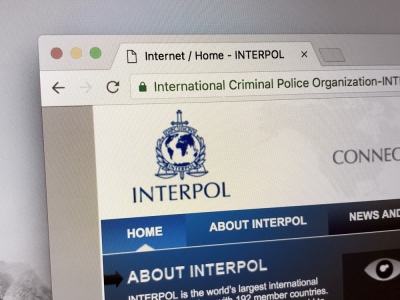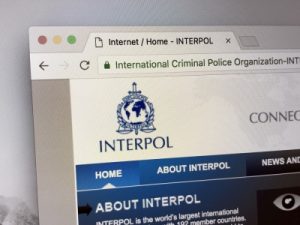
The Absolute Right of Governments to Deny Individuals Access to INTERPOL’s Files and the Need for Due Process: CCF Seeks Balance
 Under its Operating Rules adopted in 2008, CCF was prohibited from providing any individual access to information about her or him without consent from the government at whose request such information was recorded in INTERPOL’s files. There was, however, one exception to this rule — CCF could provide access without a government’s consent if the individual had “sufficient evidence showing that he/she [knew] that there [was] information about him/her in INTERPOL’s files.” In 2017, this exception was repealed with the adoption of the new CCF Statute. As a result, CCF lost its power to disclose any information without first obtaining approval from a government, even if the individual possessed sufficient evidence that she or he was aware of the existence of a red notice or diffusion.
Under its Operating Rules adopted in 2008, CCF was prohibited from providing any individual access to information about her or him without consent from the government at whose request such information was recorded in INTERPOL’s files. There was, however, one exception to this rule — CCF could provide access without a government’s consent if the individual had “sufficient evidence showing that he/she [knew] that there [was] information about him/her in INTERPOL’s files.” In 2017, this exception was repealed with the adoption of the new CCF Statute. As a result, CCF lost its power to disclose any information without first obtaining approval from a government, even if the individual possessed sufficient evidence that she or he was aware of the existence of a red notice or diffusion.
Under Article 18 of the INTERPOL Rules on the Processing of Data, “[a]ny person or entity shall be entitled to submit directly to the Commission for the Control of INTERPOL’s Files [(CCF)] a request for access to . . . data processed in the INTERPOL Information System concerning that person or entity.” Although INTERPOL has long referred to this provision as the “right of access” to its files, individuals have not had unconditional access to any information about them recorded in the organization’s databases.
The new CCF Statute requires that a government justify any restriction on the disclosure of information (Article 35(4)). However, the Statute also proclaims that “[t]he absence of justification alone will not lead to the disclosure of the content of the information.” Although a government’s unjustified refusal “may be taken into consideration by [CCF] in assessing and deciding on [an individual’s] request [to delete information from INTERPOL’s files],” CCF does not disclose any information without an approval no matter how much governments abuse what has become, since the Statute entered into force, their unrestricted, absolute right to deny access.
Defense lawyers, human rights advocates and INTERPOL have all agreed that it is critical for individuals who challenge red notices and diffusions to be able to access information about themselves in the organization’s databases. For example, in some cases, individuals are unable to obtain information about the full extent of the prosecution and charges against them at a national level. In such cases, the lack of access to a red notice or diffusion makes it virtually impossible to prepare a comprehensive complaint against the government’s use of INTERPOL’s resources. CCF has recognized that a restriction on access to information about an individual may “create imbalance between the parties,” “[hinder] the adversarial nature of the proceedings [before CCF] by preventing [an individual] from being able to present specific counter-arguments” and lead to a “fundamental breach” of her or his rights.
Not surprisingly, with the adoption of its new Statute, CCF’s handling of requests for access to information has attracted a lot more attention. Ironically, INTERPOL granted governments the absolute right to deny access to its files at the same time as the organization was carrying out several important reforms aimed at bringing CCF’s proceedings regarding individual complaints more in line with due process standards. When the Statute came into force, it was unclear how CCF could continue to move towards guaranteeing individuals due process, the direction which the recent reforms were clearly pointing in, and at the same time enforce the governments’ absolute right to deny individuals access to information about them in INTERPOL’s files. In its recent decisions, CCF provides much insight into its search for a balance in this regard.
CCF has stressed that in order to comply with Articles 35(3) and 35(4) of the Statute, a government must:
- “[(1)] indicate the reason(s) for its refusal to disclose any information to the Applicant, among the following ones listed in Article 35(3) of the CCF Statute: (a) [t]o protect public or national security or to prevent a crime; (b) [t]o protect the confidentiality of an investigation or prosecution; (c) [t]o protect the rights and freedoms of the applicant or third parties[;]
- [(2)] justify its refusal in the specific case at hand[;]
- [(3)] indicate, as provided for by Article 35(4) of the CCF Statute, whether a minimum amount of information can be disclosed to the applicant.”
When a government requests restrictions on access to information about an individual, CCF “tries on the one hand to protect the interests of the parties, while preserving at the same time the essence of an adversarial procedure in order to provide an effective remedy.” In assessing whether the government’s interest in restricting access to information outweighs an individual’s interest in obtaining access to such information, CCF “takes into account, inter alia, the general context of the case, the other avenues available to the [individual] to obtain access to the information at the national level, the potential violation of other rules or international obligations, the possible risks for INTERPOL.” Although under the Statute the absence of justification for a refusal to disclose information does not lead to its disclosure, CCF, nevertheless, considers the provision an “exception to the general principle of communication of information,” recognizes that it is “bearing consequences on the rights of the parties” and for that reason interprets it “strictly.”
To prove that a restriction on the disclosure of information meets at least one of the justifications provided in Article 35(3) of the Statute, the party must show that the restriction is “relevant” and “necessary and proportionate to [its] stated purpose.” In order to make an “effective determination” in this regard, CCF, unlike the parties in a case before it, “must be allowed unlimited access to the information concerned.” In this regard, some of CCF’s recent decisions describe examples of governments’ unjustified refusals to disclose information to an individual. Among the most obvious violations of Article 35 is a government’s opposition to any disclosure, “an absolute restriction of communication of information,” “without any reference to the grounds mentioned in Article 35(3)” combined with the government’s refusal to “any counter-balancing measures (such as the provision of a redacted summary, of a minimum set of information, or simply a confirmation of the existence of data), which may have minimized the impact of the restrictions on the rights of the [individual].” CCF has also ruled that governments must prove “relevance and proportionality” of requested restrictions on the disclosure of information “in the context of [the] case.” In this regard, a government’s “general comments on the potential consequences of a disclosure” instead of evidence “link[ing the restrictions] to the particular case at hand” do not suffice.
It is important to remember that a government’s refusal to provide a justification for non-disclosure of information and, as a result, its non-compliance with INTERPOL’s rules regarding individual access to its files, does not automatically mean that CCF will interpret the government’s refusal in favor of the individual in deciding on her or his request to delete information. For example, if an individual obtains such information from a source other than CCF, the government’s decision to deny her or his request for access addressed to CCF might not be taken into consideration by the latter. Ultimately, CCF seems to be more concerned about an individual’s ability to “effectively challenge the data” than a government’s unjustified refusal to disclose it.
Despite the limits that the INTERPOL General Assembly has placed on the ability of individuals to access information about them in the organization’s files, CCF seems to take seriously the issue of governments abusing their absolute right to deny such access. For example, in one of its recent decisions, CCF has ruled to delete a request to locate and arrest the individual in view of his extradition unless the government, which has previously placed an absolute restriction on communication of information to the individual without justification, agrees to provide such access or justifies its refusal to do so under the Statute. Undoubtedly, CCF deserves credit for this.
